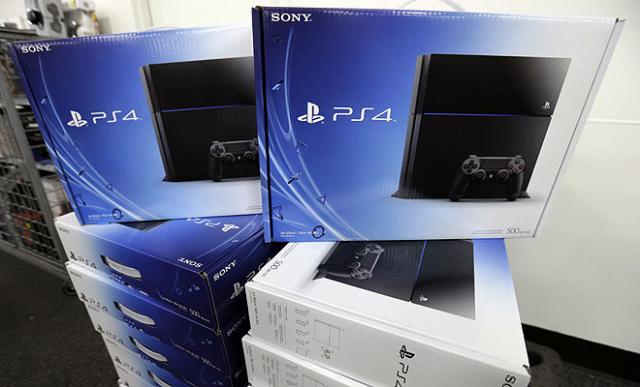
Why Sales Figures Matter - Article
by VGChartz Staff , posted on 20 April 2014 / 8,379 ViewsI’ve been hearing a lot of chatter recently from high level journalists that, with the next generation (now the current gen), sales figures mean little. The biggest example I’ve heard so far is from a brilliant investigative journalist over at Giant Bomb by the name of Patrick Klepek, the man who originally found out that Microsoft was going to pull a U-turn on the always-online DRM policy. In his most recent podcast, he states that:
“We don’t have enough information; NPD releases fewer and fewer bits of data every single year because the publishers have wrestled that control away from NPD. Steam releases precious little data about PC sales, and what this allows video game companies to do, and valve is culpable in this as well, is paint their own narratives.
We don’t have enough information to actually accurately talk about any of this, and that’s what's frustrating, because people are so quick to grab the first piece of data that fulfils their own personal narrative; whether it’s the console war, or a game that they’ve bought that they wanna validate that it’s sold really well. We just don’t have enough information to make any of those arguments, so that’s what makes any of these arguments so God damn frustrating; it's cause you’re arguing over nothing, cause the games industry has systemically removed every piece of information that allows us to even make a credible data-driven argument about the state of the games industry.”

This is a similar story to what I’ve heard from many games journalists across multiple sites, with many of them thinking they’re above sales numbers as that’s something only internet trolls get involved with. The fact of the matter is, sales figures are a great way to gauge what’s happening in the industry, and a great way to predict the future of a franchise, as well as getting into the minds of developers/publishers themselves.
The industry doesn’t live in a bubble where developers make games for the sake of making them; they want to make a profit, or enough money to tie them over for the development costs of their next title. In a perfect world, developers wouldn’t have to think about the money side of game development, they could make games just for the fun and joy of making them. Unfortunately, we don’t live in that perfect world, and developers have publishers they need to talk to and convince in order to get the funding they need for their next great idea.
Take, for example, one of my favourite franchises from the previous generation: Alan Wake. The game was critically acclaimed, receiving good reviews from the majority of publications, and was loved by fans the world over. But by looking at the retail sales figures for the series, you can see why Remedy haven’t decided to make a fully fledged sequel: 1.26 million global sales. For a company that spent so many years developing the game, that likely wasn’t enough to cover the costs associated with the development, and certainly isn’t enough to justify a sequel. I know this isn’t the whole picture, as PC digital sales may have pushed the figure past 2 million, but my point is that although we don’t have the complete picture, we still have enough to make well-reasoned arguments on why a developer makes the decisions they do.

Sales figures are also why Double Fine studios prefer to go directly to the public with funding ideas nowadays, as they don’t have to construct a sales argument for publishers. Tim Schafer is notorious for going over budget with his games, and said games ultimately not making much of a return for publishers. With the self-funding model Kickstarter provides, they merely have to tug on the nostalgia of their masses of fans, and they get the money they want for their next project without any of the consequences of not hitting sales figures.
Sales figures are similarly crucial when it comes to platform development. When publishers, for example, notice a larger install base on the PS4 than its rivals, they may be more inclined to enter into some sort of exclusivity agreement with Sony. It happens all the time in other sectors of the industry, most notably the mobile phone market, where many game developers choose to prioritise their release for iOS over android, as sales numbers and statistics have shown that iOS gamers spend more on average than Android. Just because the sales figures we read aren’t 100% accurate, it doesn’t stop them from having an effect on these companies' future decisions.

The confirmation bias Patrick speaks of is true to a degree, but I know many of us feel more comfortable arguing with facts behind us than on pure opinion. Saying to someone that the Xbox 360 had more exclusives at the start of its reign due to its strong sales lead and easier development is better than just spouting your opinion.
We rarely have insight into how a games company works and how decisions are made. With sales figures we get a sneak peak, albeit brief and incomplete, into the inner workings of a company. Don’t ignore sales numbers like so many journalists do. Embrace them, and realise how important they are in understanding an industry that’s so secretive and closed.
The point of this article isn’t to contradict Patrick, or any other games journalist; it is to hopefully open readers' eyes into using as many means as possible to learn more about the video game companies they so dearly love.






















 Essay Pro
Essay Pro